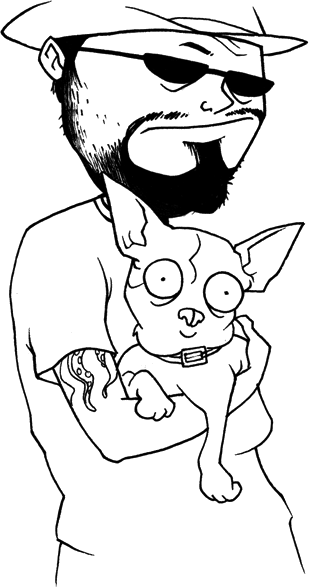“Shut Up!” and Other Lessons Founders Should Learn from Journalists

This story also appears in Found+Read.
I know it’s cool to dis the “MSM” – it’s one of my favorite pastimes – but I’ve also spent years as a journalist and editor, and lately I’ve been thinking about all the lessons learned there and how they can be, and should be, embraced by startup founders.
Lesson 1: Seek the Truth
Founders are dreamers. They look at the world and see a problem and cannot rest until its solved. To do that, you have to be a little crazy. After all, if the problem was easily solved, it probably would have been already. So founders have to be willing to suspend their disbelief and drive toward a goal, no matter what.
But journalists live in a perpetual state of disbelief. Skepticism is the norm. Because, in journalism, nothing is true unless you can back it up. Just because one person says it, doesn’t mean it’s true. See if you can get someone else to confirm. Double, triple check. Your reputation is on the line.
The journalist founder needs both qualities: you need to have a crazy dream and the desire to pursue it the bitter end, but you also need to retain your skepticism. If the plan doesn’t work, what’s the fallback? Are you sure you have all the right information to make your decisions? Are you double checking what people tell you?
Lesson 2: Be Relentless
I was the editor of a small newspaper in Santa Cruz. When we were running a story about the local college and the provost was not returning my calls, I went and sat in her office. When her assistant told me she wasn’t in, I kept my butt in the chair anyway. When she finally left for the day, I caught her and got my interview.
The journalist founder needs to be that dogged. When the email isn’t returned, call. When the call isn’t returned, visit. When that doesn’t work, try something else. You have to want it more than anyone else – that’s what’ll make your startup succeed where others failed.
Lesson 3: Shut Up
The meat of journalism is the interview. Asking the right questions, at the right time, in the right way, to get the most valuable insights out of the people around you. And you learn very quickly that doing that requires that you shut the hell up and listen.
Startup founders are dreamers, and dreamers want to convince everyone around them to believe in the dream, too. But by doing all the talking, you’re missing the chance to learn from those around you.
I was interviewing someone on the phone the other day. He was a hard guy to get ahold of we didn’t have much time. I asked him a few questions and then laid out a brief sketch of the idea I had. I thought he’d be an ideal customer.
“I would never use that site in a million years,” he said.
Every cell in my body screamed out at once: He doesn’t understand! He must not get it! Explain it some more!
Instead I said: “Why?”
He started listing off the problems he saw, and I started taking notes. Of course, I had rebuttals to every one, but my job in this interview was not to convince him of my brilliant idea, it was to get his feedback. So all I did was listen until he finished, and then repeated his main concerns back to him when to make sure I got them all down correctly.
In the end, I may not change my idea at all. But if he has those concerns, chances are, other customers may, too. By listening to them now, I’ll be better prepared. That phone call, as disheartening as it was, probably saved me months of work.
I can’t tell you how many meetings I’ve attended at startups over the last twelve years where smart people sat in a room repeating themselves, not listing to anyone around them. The journalist founder knows better: You will have moments where your job is to convince the people around you of your brilliant idea, but save it for the press. When dealing with your employees and collaborators, your job is to bring the smarts out of them, not convince them of yours. And that means shutting up and listening.
Lesson 4: Produce Something
All of the above – seeking the truth, being relentless, shutting up – is all part of the process of journalism, but the product of journalism is what counts. In the end, you have to produce a story to share your results with the world.
Too often, founders hoard their work too long. We’ll put the site out once we add a few more features. We can’t share what we’ve learned because it’ll help our competitors. Sit and wait.
The journalist founder knows that there’s nothing to fear from producing something. It doesn’t have to be perfect – you just have to put it out there, listen to the feedback from your customers, and then do it again, making sure that each iteration gets a little better.
No one ever won a Pulitzer for the story they almost wrote.
